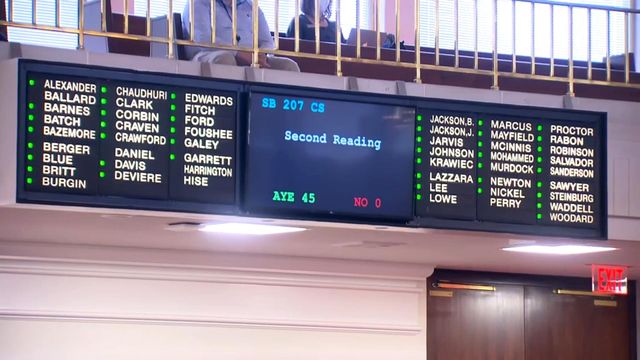Lawmakers press to keep children under age 10 out of NC courts
North Carolina is the only state in the U.S. where a child as young as 6 years old can face criminal charges, but lawmakers are working to change that.
Posted — UpdatedThe state Senate voted 45-0 on Thursday for legislation that would raise the minimum age for criminal prosecution to 10, on par with many other states.
Many cases of alleged delinquency in young children are already handled through diversion programs. But if parents or guardians don't follow through, the child can end up facing charges in front of a judge.
That often begins a lifelong journey into the criminal justice system – and it is used disproportionately against children of color.
"Many of these 6-, 7-, 8-, 9-year-olds, they still believe in the Tooth Fairy, but they're having to understand a court proceeding," Britt told his Senate colleagues. "It seems archaic and unfair."
The state law has been on the books since 1979.
"A lot of them are dealing with so much trauma in their life that being in a courtroom with armed deputies, seeing a judge, seeing all these serious people in suits and attorneys – that’s a lot of additional trauma for young people," Mujtaba said.
Rep. Marcia Morey, D-Durham, a former judge, said she saw far too many confused and bored young children in court during her years on the bench.
"They would have coloring books to just stay still," Morey said. "They don’t understand adjudication, a plea, [and] the judge goes through several pages to ask them adult questions. We’ve been doing them a disservice. They don’t have the capacity."
Under Senate Bill 207, which now heads to the state House, the courts would still have authority to make sure children are getting the help they need, Mohammed said.
"We’ll still be able to provide services to these kids and their families, their parents or guardians, whoever, to make sure that they have the resources that they need through the juvenile process without treating children as young as 6 like criminals," he said.
Related Topics
• Credits
Copyright 2024 by Capitol Broadcasting Company. All rights reserved. This material may not be published, broadcast, rewritten or redistributed.






